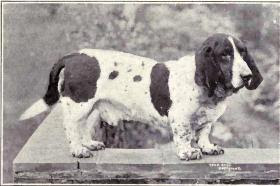Really positive meeting with a lot of discussion on how branches can work together in region East. There are plans to set up a system for coordinating drivers over a wider area than individual branches to make it easier to move animals to centres where they may have a better chance of adoption. This could also be used within branches for transfers between kennels and vets and so on.
Basically the idea is that someone in the Regional HQ office will be given the job of holding a list of volunteers car drivers with details of how far they're prepared to travel and integrating this with the list of available paid drivers from the animal homes and Animal Collection Officers. Branches would still arrange their own routine animal movements within their own areas if possible, but if they were stuck or had a need to transport animals further afield they could contact the office and ask them to try to sort it out. This should minimise the use of AWOs and Inspectors (who shouldn't be taken away from casework and rescues except in dire emergency) and save money by speeding up rehoming and transferring animals from vets' surgeries as soon as they're fit enough to be moved so we're not paying expensive ward charges for animals who don't need it.
Useful information about the new HQ loan scheme for branches who need to fit out or refit shops: it looks as though it would not be a problem for us to open our proposed shop in Newmarket and put in a loan application to do an upgrade later in the year if the timetable worked out that way.
RSPCA governing council have restated their policy against sale of live animals in pet shops; aim is to encourage shops to realise that the real money is in sales of pet food/litter/equipment etc. and that they would not lose by working with rescue groups to promote rehoming rather than increasing the circulating pet population by purchasing animals from breeders for resale.
Discussion of the perennial problems of animals ending up at vets but branches not being told about it until the vet is half an hour away from knocking off for the weekend and wants them moved somewhere else right now. Most of the inspectorate staff will warn branches if they drop off animals, but when a member of the public is asked to take an injured stray to their closest vet for treatment no-one may think to contact the branch. As we're the ones responsible for continuing care after the initial first aid, this is a constant annoyance; to the vets as much as to us.
Discussion of the perennial problems of animals ending up at vets but branches not being told about it until the vet is half an hour away from knocking off for the weekend and wants them moved somewhere else right now. Most of the inspectorate staff will warn branches if they drop off animals, but when a member of the public is asked to take an injured stray to their closest vet for treatment no-one may think to contact the branch. As we're the ones responsible for continuing care after the initial first aid, this is a constant annoyance; to the vets as much as to us.




































